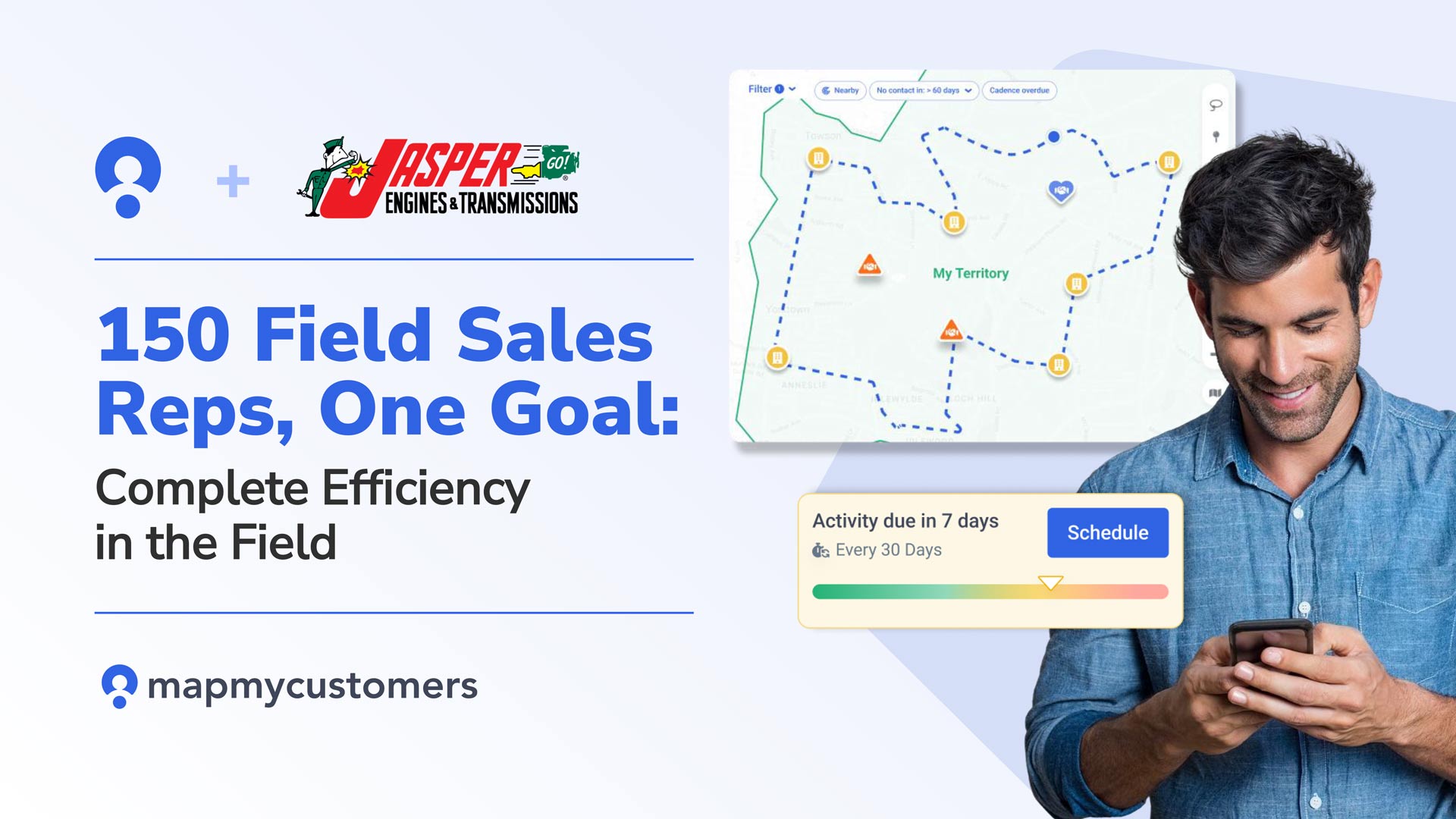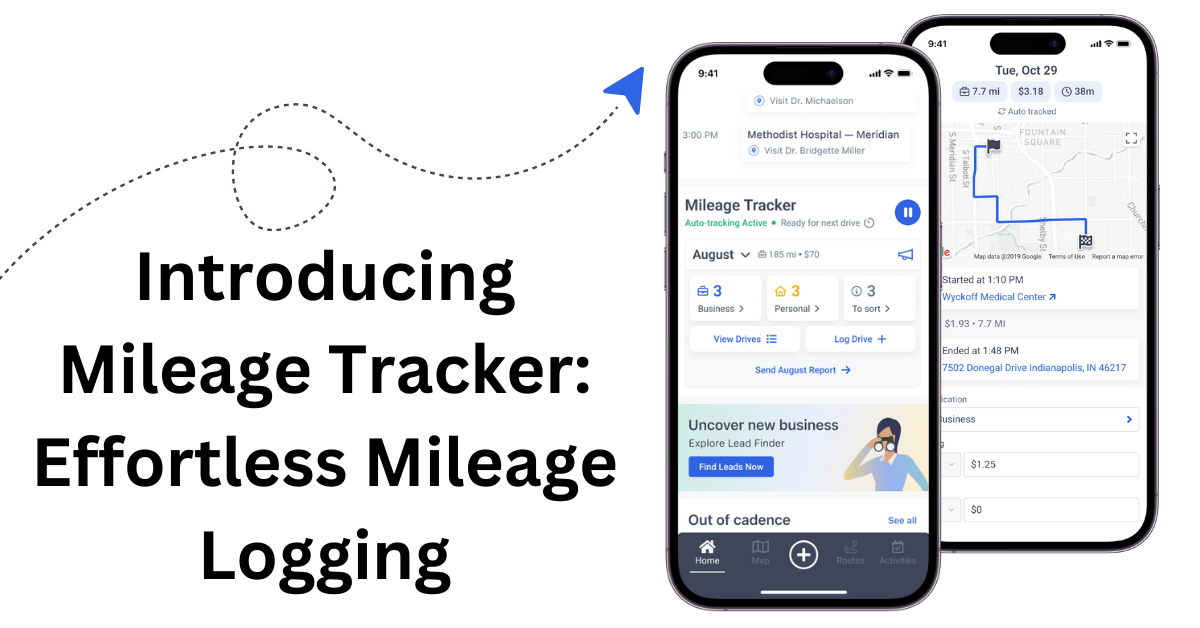
Most likely, you’re throwing your money away on ineffective sales coaching. And you’re not alone.
When it comes to coaching a sales team, it takes intentionality and strategy to help your sales reps sell effectively and become as successful as possible. According to research from CSO Insights, 75% of sales organizations waste resources due to random and informal coaching approaches. If you don’t have a formal and dynamic coaching plan, you’re most likely failing.
A lot of people in sales leadership got to their position because they were successful sales reps. That does not automatically translate, though, to the direction and coaching skills required to lead a successful team. Just because someone is fantastic at selling doesn’t mean they are a fantastic sales trainer.
Some sales managers may not realize or possess the skills needed for effective sales team coaching. However, coaching is a critical component of a sales team’s success. The study from CSO Insights also found that companies with an effective sales coaching program have a 28% higher win rate on average than those who don’t.
So what does it take to coach a team to success? We’ve broken down everything you need to know about sales coaching, including what it is, what differentiates good from bad coaching, and how to improve your sales coaching process.
What is Sales Coaching?
Sales coaching is used by managers to help reps strengthen sales skills, improve their performance, and achieve their goals. It is an ongoing process after onboarding to continue to provide the necessary instruction, making sure reps continue to learn and grow in their sales position.
Effectively coaching a sales team requires assessing the areas of strength for each salesperson, as well as where they need improvement. Sales leadership then provides feedback that allows them to develop their skills and improve their behaviors to consistently achieve their sales goals.
Sales coaching also serves to strengthen the sales manager-rep relationship. Especially in outside sales, reps can become independent and lose a vital connection with leadership. Sales coaching allows them the space to discuss any concerns and ensures that they are always on the same page.
Good Versus Bad Sales Coaching: Do Your Homework
So what differentiates coaching that is helpful from coaching that is just wasting everyone’s time?
As the statistic we mentioned above indicates, not all coaching is equal. While almost half of all sales managers state that they regularly spend between 30-60 minutes individually coaching reps, that doesn’t mean they’re doing it well.
One of the most definitive characteristics of good versus bad sales coaching is doing your homework. During my sales days, my favorite managers would look at what I had going on before sitting down with me. They would know what was currently in the pipeline, what deals I was working on, and what accounts or prospects I was targeting.
Good sales managers come to a coaching meeting with the homework done that allows them to start getting into the important topics immediately. Then they can ask about what the current sales approach is and what the next steps are for the current prospects. This allows you and your rep to effectively strategize together on how to progress the deal, account, or relationship.
My worst sales managers began each meeting with, “So, what have you been up to?”
Instead of already knowing what I had going on in my pipeline, we would waste precious time as I’d catch them up to speed. This then meant that they didn’t have time to come up with actionable advice or relevant strategy. Instead, they would have to come up with solutions and ideas on the spot, which are rarely the best approach to any situation.
Sales coaching needs to be tailored and individualized to fit where each rep is on their sales journey. Without a specific understanding of where they are, you cannot effectively serve as a sales coach. So, take the time to do your homework and utilize the data and information you have available to you to help guide your coaching.
Reviewing sales activities and notes can also help you effectively prepare ahead of time to ask informative questions or develop an action plan. You can go into the conversation with an idea of where your reps are missing opportunities to better connect with their prospects and additional insights that KPIs alone cannot give you.
How to Improve Your Sales Coaching: Step-by-Step
Doing your homework as a sales coach means understanding who you should focus on, what topic areas you should concentrate on, and what coaching methods you should utilize.
Here are some steps you can take to pinpoint those things and get the most out of your time coaching a sales team:
Focus on the Right Reps

Often managers focus their time and energy coaching the least effective people. They are tempted to spend most of their time coaching the low and top performers. In reality, though, the reps that could benefit the most from their coaching are the middle performers.
Often, managers worry about their low performers. They fear that they will drag down the team and figure that these reps have nowhere to go but up. However, bottom performers are often that way because they are a poor fit for the position. No amount of coaching can correct someone who is just not the right fit.
Instead of concentrating on coaching reps who can’t or won’t perform, managers may need to focus on getting them out of a position that’s not working for them.
The other group that managers tend to spend their time with are the top performers. The same characteristics that make them high performers are also what make them easy to coach. The star reps are usually willing to learn while still knowledgeable. The top sales reps can also be an ego stroke for managers: they want to believe they’re essential to the rep’s accomplishments.
However, top sales reps are often limited in how much better they can actually do. There’s only so much a manager can teach them, and even then, it might not make a significant difference in their sales.
Instead, really take the time to help the reps that can actually benefit the most from your coaching. The salespeople somewhere in the middle usually have the right skills and are a good fit for the company, but they still have room for growth. They could use actionable advice and can dramatically improve from the right sales coaching.
Researchers Matthew Dixon and Brent Adamson refer to this group as the “middle 60%.” They are the ones that can benefit the most from coaching and are worth spending time to help develop their skills.
Gather and Utilize Your Sales Data
There are many different sales topics you can tackle and approaches to take with sales coaching. All of the possibilities can end up being overwhelming for leadership. Plus, sales coaching is not a one-size-fits-all. The coaching methods that help and inspire one rep may not do anything for another. The challenges for one salesperson may not be for another.
So how do you know exactly what sales coaching focus is suitable for a particular sales rep? Take a look at their data. This can be done in a couple of different ways:
Lean on Your Sales CRM
Don’t rely on your gut on where you think your reps need help. Instead, take a look at their sales metrics. Your CRM is a good place to start to gather some of these insights. Dig deeper than their opportunity-win rate to see exactly what part of the sales process might be challenging for them. Your CRM sales data can help give you a more detailed look into where you can offer help. For example, looking into their demo-to-close rate or average order size might give you more insights on exactly what part of the process is causing their numbers to suffer.
Utilize Activity Data from Your Other Sales Tools

The right sales team management software not only allows you to check their KPIs but will also provide insights into what activities the rep is doing. In the middle of a sales coaching meeting, it is easy to forget every question. If you bring up a specific deal or customer, they may not remember all of the details. Software that allows them to log activities, communications, and take notes will be a valuable tool to ensure that every topic or question is covered.
Some CRMs allow reps to write notes for their customers. HubSpot, Salesforce, and Zoho all offer note-taking features directly on their software. However, there are also times when reps need the ability to take prospect notes out in the field. The mobile-first sales solution from Map My Customers offers a robust range of features that allow your reps to take their technology with them and log information from anywhere. This gives your team a convenient way to take notes and capture important data out on the road.
Use Effective Sales Coaching Software

Good sales coaching software will help you laser-focus and streamline your coaching plan for maximum impact and success. Tools like Gong, Jiminny, and Close can help you easily pinpoint what is working and should be reinforced as well as exactly where (and with whom) opportunities for improvement lie.
As we mentioned above, sales data can help pinpoint who your best-performing reps and lowest-performing reps are by the numbers. But, sales coaching software platforms often utilize things like conversation intelligence, call coaching, AI communication analysis, and other coaching techniques. All of these things really dive into exactly how your reps are communicating, what conversations they are using to close deals, and how they best absorb training material.
Effective sales coaching software provides sales leadership and reps the valuable insights needed to pinpoint blockages and inefficiencies in the sales process, strengthen skills, and significantly improve individual performance.
Use Sales Coaching / Meeting Templates

Besides having the right data and sales coaching software, sales coaching and meeting templates can help you streamline and laser-focus the coaching process even further.
There are a variety of different templates available that can be used by both sales managers and reps. Some are designed for you to utilize to help drive your 1-on-1 meetings with reps or overall team meetings, while others are used by your reps to help reinforce your coaching.
For example, Ambition offers free ready-to-use templates that were created and are used by some of the top companies around. You can see the exact questions that experts ask to help inspire their sales reps and improve their performance.
Another useful type of sales coaching template provides a guideline to help your reps come up with personal goals to reach for and discuss each week. Some templates even incorporate mentoring and coaching examples that you can use to deliver exciting and interactive training sessions to your reps.
The coaching template you use does not have to be overly complicated to work well for your team. You could even just use a simple checklist template that will help keep you on track during your sales meetings, ensuring that your sessions are meaningful while still giving you the flexibility to make the meeting all your own.
Create a Larger Vision for Your Reps
Getting sales rep buy-in is essential in successful sales coaching. While it can be effective, monetary compensation can only go so far when inspiring your sales team. They need to feel as though they are contributing to the company and are a valued part of a team.
To get the most buy-in and inspiration, create specific and exciting goals for the sales team to get behind.
Some examples can include breaking a company or industry record or gaining an industry reputation. Make your team feel as though they are a part of something bigger. Something that they can be proud of in the long run.
Openly share your vision with your team and praise those who are helping you meet these goals. Share the team’s progress towards your objectives when you meet with your sales reps.
Get Your Reps’ Feedback
While you may have specific goals and challenges to work on with your sales rep, a critical part of coaching is supporting and energizing them. Your sales coaching sessions and methods should motivate them to continue growing, changing, and getting out of their comfort zone.
Using feedback from your reps is an essential part of doing just that. Ask your sales reps what their goals and motivation are for becoming better. More likely than not, their motivation will be financial incentives but dig deeper to find out why. Some may want to pay off their student loans, while others need to pay their mortgages or their kids’ schooling. Help them to concentrate on these larger goals to strive harder.
The goal of sales coaching is to encourage behavior change. You need the right motivation to do that.
Also, when meeting with your reps 1-on-1, take some time to ask open-ended questions, such as:
- How do you feel about our plan?
- Does anything need clarification?
- Is there anything else you would like to address?
You want to get them to open up to ensure they understand what they need to do and the concepts you’re discussing with them. Be sure that you offer your reps feedback as well. Provide encouragement through more positive than negative feedback to leave them feeling inspired rather than discouraged.
Continue to Follow-Up Regularly
Effectively coaching a sales team is not a one-time endeavor. It is a dynamic and ongoing process that aims to provide real support to your sales reps. As their deals and prospects progress, your industry changes, and the company continues to grow, the help your reps need will change. Follow up with them regularly to ensure they continue to increase their skills and knowledge to become a top performer.
Motivation and inspiration can quickly fade. Ongoing support and meetings will help ensure that your reps stay motivated. It also allows you to find out if the strategies you discussed are working or not. You can then come up with new ideas and utilize different coaching techniques if they are not.
Plan on maintaining weekly meetings with your sales reps, individually and as a team. Create a weekly reminder with set sales meetings agendas for both you and your reps to plan on attending. Plan on each session taking between 30-60 minutes depending on how much there is to discuss and their level of experience.
As we mentioned above, templates are a great way to ensure that meetings are consistent each week. They can also provide a touchpoint to compare performance and track for improvement over time.
Sales leadership can also ensure rep accountability with these weekly meetings. You can use the meetings as a chance to make sure salespeople are putting in data accurately and thoroughly.
Boost Your Team’s Success Through Better Sales Coaching
Don’t throw your time and resources away with poor sales coaching. Instead, do your homework ahead of time to ensure you’re actually helping your reps exactly where they are at in their sales career.
The more effort you put into sales coaching, the bigger return you will get in a well-trained and motivated team.
Once you know where you need to focus, utilizing the steps and methods we covered above will help ensure you are being as strategic and effective as possible with your reps. Start implementing some of these strategies today!





